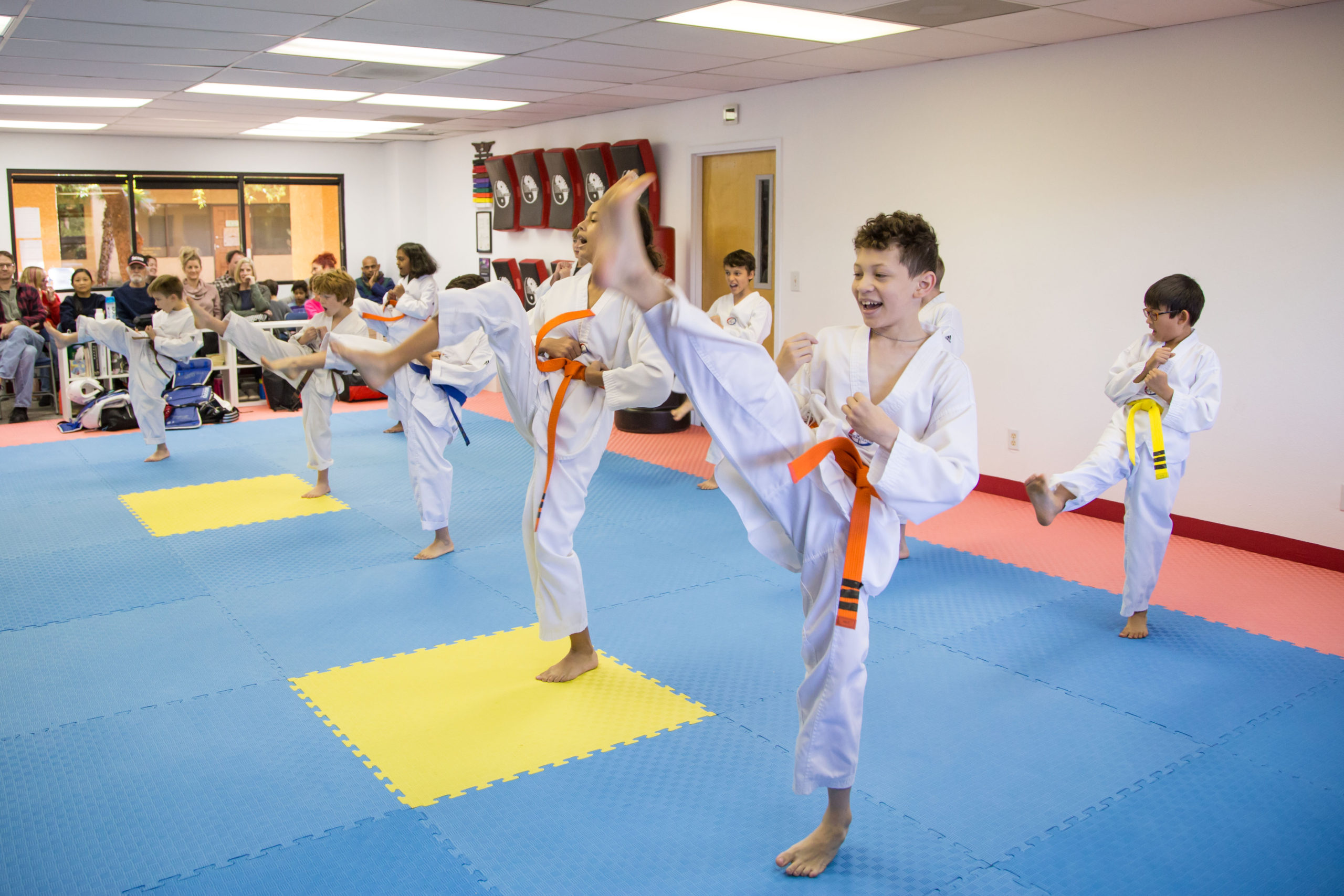
In today’s fast-paced world, children are often bombarded with stress and distractions. With the lure of digital devices and fast-food conveniences, it can be challenging for parents to instill the values of health and wellness in their children. Fortunately, martial arts offer a holistic approach to improving both physical fitness and mental health, providing children with the tools they need to thrive. This blog explores how martial arts can be a transformative journey for your child.
1. Enhancing Physical Fitness
a. Strength and Stamina
Martial arts is a dynamic practice that involves a blend of cardio, strength training, and flexibility. Unlike many other physical activities, martial arts focus on building core strength which is essential for overall body fitness. Techniques such as kicking, punching, and grappling require the entire body to engage, building lean muscles and enhancing cardiovascular health.
For a child, developing strength and endurance can have a long-lasting impact on their physical capabilities. Regular martial arts training helps in maintaining a healthy weight, builds strong bones, and reduces the risk of obesity-related health issues. Consistent practice can also improve posture and coordination, which are foundation blocks for any physical activity.
b. Agility and Flexibility
Through repetitive movements and routine practice, martial arts enhance a child’s agility and flexibility. Martial arts such as Karate, Taekwondo, and Kung Fu emphasize continuous movement and require the body to adapt quickly, thus improving speed and the ability to make quick directional changes.
Flexibility gained in martial arts helps prevent injuries and maintains a range of motion in the joints. For children, this means they are less likely to experience strains and sprains and can engage in other physical activities with reduced risk.
2. Boosting Mental Health
a. Focus and Concentration
In a world filled with distractions, developing a sharp focus can give a child an edge in academia and life. Martial arts require considerable concentration and precision. Whether learning a new form or sparring with a partner, a child must remain present and focused, honing their attention to detail and improving cognitive functions.
With routines that encourage meditation and mindfulness, martial arts instill a calm and focused mindset. Children learn to redirect their energy positively and develop better study habits, leading to improved academic performance and enhanced learning capabilities.
b. Discipline and Self-Regulation
Martial arts entail a structured environment where discipline is key to progress. Instructors emphasize the importance of respect, following instructions, and self-control. This structure teaches children the importance of patience, persistence, and the ability to implement self-restraint.
Children who practice martial arts often display improved behavior, both at home and in school. They learn to understand the value of hard work and the satisfaction of achieving goals through prolonged effort and dedication. This discipline extends to other areas of life, enhancing a child’s ability to manage time and make responsible decisions.
3. Building Self-Esteem and Confidence
Confidence forms the backbone of a child’s ability to interact socially and face challenges head-on. Martial arts offer a gradual progression of skills through belt rankings, providing children with clear benchmarks for success. This progression gives them a sense of achievement and boosts self-esteem.
a. Achieving Milestones
Each belt earned is a testament to hard work, determination, and mastery of certain skills, motivating children to set and achieve personal goals. Mastering forms and techniques instills a sense of pride and develops a positive self-image. Children start believing in their capabilities, which reflects in their daily interactions and how they handle adversity.
b. Public Performance and Community Recognition
Participation in tournaments and demonstrations provides children with the opportunity to perform in front of an audience. Overcoming stage fright and performing under pressure are invaluable experiences that build public-speaking skills and the capability to stand confidently in front of groups. Community recognition enhances their sense of belonging and acceptance, fostering a supportive identity.
4. Improving Social Skills and Emotional Intelligence
Martial arts foster a community environment where peers encourage each other to improve and succeed. Interacting in such an environment enhances a child’s social skills and emotional intelligence.
a. Teamwork and Cooperation
While martial arts are often practiced individually, many schools incorporate partner drills and group activities. These exercises encourage children to cooperate, communicate effectively, and work towards common goals. Understanding the importance of teamwork prepares children to work with others better at school and later in the workplace.
Written by AI & Reviewed by Clinical Psychologist and Head Coach: Yoendry Torres, Psy.D.
Disclaimer: Please note that some blog posts may contain affiliate links and TKD Wellness will earn a commission if you purchase through those links at no additional cost to you. We use all of the products listed and recommend them because they are companies or products that I have found helpful and trustworthy. Our website is supported by our users.